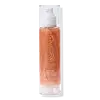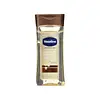What's inside
What's inside
 Key Ingredients
Key Ingredients

No key ingredients
 Benefits
Benefits

No benefits
 Concerns
Concerns

 Ingredients Side-by-side
Ingredients Side-by-side

Homosalate 10%
Skin ConditioningOctocrylene 10%
UV AbsorberEthylhexyl Salicylate 5%
UV AbsorberButyl Methoxydibenzoylmethane 3%
UV AbsorberOctyldodecanol
EmollientC12-15 Alkyl Benzoate
AntimicrobialPolyamide-3
Butyloctyl Salicylate
Skin ConditioningOctyldodecyl Neopentanoate
EmollientAleurites Moluccanus Seed Oil
Skin ConditioningMacadamia Ternifolia Seed Oil
EmollientTocopheryl Acetate
AntioxidantCocos Nucifera Oil
MaskingHibiscus Sabdariffa Seed Oil
EmollientPersea Gratissima Oil
Skin ConditioningParfum
MaskingTriethoxycaprylylsilane
Pentaerythrityl Tetra-Di-T-Butyl Hydroxyhydrocinnamate
AntioxidantAlpha-Isomethyl Ionone
PerfumingBenzyl Benzoate
AntimicrobialCoumarin
PerfumingHexyl Cinnamal
PerfumingLimonene
PerfumingSynthetic Fluorphlogopite
Mica
Cosmetic ColorantTin Oxide
AbrasiveCI 77891
Cosmetic ColorantCI 77491
Cosmetic ColorantHomosalate 10%, Octocrylene 10%, Ethylhexyl Salicylate 5%, Butyl Methoxydibenzoylmethane 3%, Octyldodecanol, C12-15 Alkyl Benzoate, Polyamide-3, Butyloctyl Salicylate, Octyldodecyl Neopentanoate, Aleurites Moluccanus Seed Oil, Macadamia Ternifolia Seed Oil, Tocopheryl Acetate, Cocos Nucifera Oil, Hibiscus Sabdariffa Seed Oil, Persea Gratissima Oil, Parfum, Triethoxycaprylylsilane, Pentaerythrityl Tetra-Di-T-Butyl Hydroxyhydrocinnamate, Alpha-Isomethyl Ionone, Benzyl Benzoate, Coumarin, Hexyl Cinnamal, Limonene, Synthetic Fluorphlogopite, Mica, Tin Oxide, CI 77891, CI 77491
 Reviews
Reviews

Ingredients Explained
These ingredients are found in both products.
Ingredients higher up in an ingredient list are typically present in a larger amount.
Benzyl Benzoate is usually created from the condensation of benzoic acid and benzyl alcohol. It is used as a preservative, solvent, and has a floral/balsamic scent in large amounts.
As a preservative, Benzyl Benzoate works against bacteria and fungus. It is often used to treat scabies and lice in medicine.
Solvents are used to keep ingredients together in a product. They can help dissolve ingredients to stable bases or help evenly distribute ingredients throughout the product.
Due to its fragrance, Benzyl Benzoate can be sensitizing and may cause contact dermatitis. It is a known EU allergen. We recommend speaking with a professional if you have any concerns.
Benzyl Benzoate can be naturally found in cranberries and peaches.
Learn more about Benzyl BenzoateCoumarins are a group of substances found naturally in plants. There are over 1300 types of coumarins identified. It has a natural vanilla scent.
Coumarin is an identified EU known allergy, meaning it may cause an allergic reaction when applied to the skin.
In many countries, coumarin is banned as a food additive. However, it can be found in soaps, tobacco products, and some alcohol drinks.
Plants use coumarins as a chemical defense. Some plants that have coumarins include lavender, tonka beans, and yellow clovers.
Learn more about CoumarinHexyl Cinnamal is a fragrance ingredient with a similar scent to jasmine. It can be naturally found in chamomile essential oil.
This ingredient is a known EU allergen and may sensitize the skin. The EU requires this ingredient to be listed separately on an ingredients list.
Hexyl Cinnamal is not water soluble but is soluble in oils.
Learn more about Hexyl CinnamalParfum is a catch-all term for an ingredient or more that is used to give a scent to products.
Also called "fragrance", this ingredient can be a blend of hundreds of chemicals or plant oils. This means every product with "fragrance" or "parfum" in the ingredients list is a different mixture.
For instance, Habanolide is a proprietary trade name for a specific aroma chemical. When used as a fragrance ingredient in cosmetics, most aroma chemicals fall under the broad labeling category of “FRAGRANCE” or “PARFUM” according to EU and US regulations.
The term 'parfum' or 'fragrance' is not regulated in many countries. In many cases, it is up to the brand to define this term.
For instance, many brands choose to label themselves as "fragrance-free" because they are not using synthetic fragrances. However, their products may still contain ingredients such as essential oils that are considered a fragrance by INCI standards.
One example is Calendula flower extract. Calendula is an essential oil that still imparts a scent or 'fragrance'.
Depending on the blend, the ingredients in the mixture can cause allergies and sensitivities on the skin. Some ingredients that are known EU allergens include linalool and citronellol.
Parfum can also be used to mask or cover an unpleasant scent.
The bottom line is: not all fragrances/parfum/ingredients are created equally. If you are worried about fragrances, we recommend taking a closer look at an ingredient. And of course, we always recommend speaking with a professional.
Learn more about Parfum